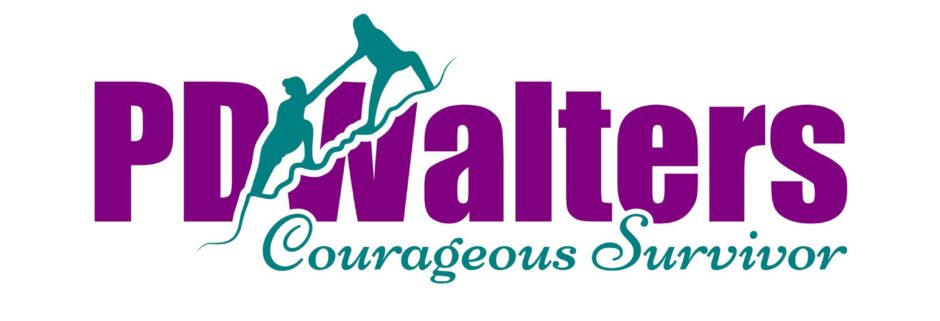For a long time, I thought what I experienced was just life. I thought pain was normal. I thought the chaos, the shame, the fear, the deep ache inside me were things everyone just… lived with.
I didn’t know I was abused until I was an adult.
It wasn’t some big, dramatic revelation all at once. It was subtle at first—like a fog lifting just a little bit, letting me see things I hadn’t been able or willing to see before. A conversation here. A memory there. Something someone else said that hit me harder than it should have. And slowly, I began to realize that the things I had normalized—because I had to in order to survive—weren’t normal.
The yelling. The manipulation. The silence that felt like punishment. The way I was made to feel responsible for everyone else’s emotions. The fear of doing something wrong, even when I didn’t understand what wrong meant. The way my body would tense when I heard certain voices or footsteps.
I didn’t have the language for it back then. As a child, I didn’t know what emotional abuse or gaslighting meant. I didn’t know that love shouldn’t leave you confused and afraid. I just knew I didn’t feel safe—but I thought that was my fault.
Even as an adult, I pushed those memories aside. I made excuses for people. I convinced myself I was overreacting, that others had it worse, that maybe I was just too sensitive. I wanted to protect the version of my story that didn’t include abuse—because acknowledging the truth would mean acknowledging the pain, and everything that came with it.
But the truth has a way of surfacing.
Healing started when I stopped running from the truth and began sitting with it. When I stopped minimizing my experiences and allowed myself to validate the child I once was—the one who didn’t have a voice, or choices, or safety.
I used to believe abuse had to look a certain way to “count.” Now I know that abuse often hides behind smiles, behind family photos, behind people who claim to love you.
I didn’t know I was abused until I was an adult.
But now I do.
And now that I do—
I will not stay silent.
Because I know I’m not the only one.
There are so many people walking through life unaware that what they endured—what they are enduring—is abuse. Sometimes it doesn’t look like black eyes or bruises. Sometimes it’s words that cut you down subtly over time. Sometimes it’s the constant second-guessing of yourself, or the way your body responds with anxiety to someone you’re supposed to trust. Sometimes it’s being taught to shrink, to please, to tolerate discomfort as love.
Abuse often disguises itself as control masked as care. Manipulation masked as protection. Silence masked as peace.
I didn’t know what to call it, so I blamed myself. That’s what many survivors do.
So, how do you know? How do you begin to recognize something you were trained not to see?
Sometimes it starts with small cracks in the narrative you were handed. Maybe you begin to feel unsettled when others talk about their childhood or their relationships. Maybe your body reacts to certain places, people, or sounds in ways that feel disproportionate—but your nervous system remembers what your mind has buried. Maybe you constantly feel like you’re walking on eggshells or feel guilty for saying “no.”
Here are some of the signs I missed—or ignored—for years:
-
Feeling responsible for other people’s moods or reactions.
-
Being afraid to speak my truth or have needs.
-
Normalizing chaos and mistaking peace for boredom.
-
Feeling anxious when things were going too well, as if I didn’t deserve it.
-
Minimizing the things that hurt me, because “others had it worse.”
-
Having a deep fear of abandonment, yet choosing relationships that mirrored abandonment.
-
Thinking love had to be earned through suffering.
If any of this resonates with you, please know—you’re not crazy, and you’re not alone.
One of the hardest things I had to learn was this:
Just because you didn’t recognize it then doesn’t mean it didn’t happen.
And just because no one validated your pain doesn’t mean it wasn’t real.
When I finally started learning the language of trauma and abuse, it was like someone handed me a map to places I’d already been—but didn’t understand. And once you understand, you can no longer unsee it.
But you can heal. You can begin again.
And it doesn’t matter if your story is just now starting to come into focus—
Because awareness is the first brave step.
And from that place, everything can begin to change.
If any part of this stirred something inside you—whether it brought clarity, emotion, or even discomfort—I want to encourage you to sit with it. Don’t rush past it. Sometimes, those quiet inner nudges are the first signs of your own awakening.
You deserve to understand your story.
You deserve to name your pain.
And you deserve healing—on your terms, in your time.
If you’re just beginning to piece together your own puzzle, know that you’re not alone. I share more of my journey, lessons, and tools for healing on The Courageous Survivor Podcast and here on my blog. These spaces were created for people like us—those learning to unlearn, to heal, and to reclaim their voice.
You are not what happened to you.
But your truth matters.
And it’s never too late to start honoring it.
